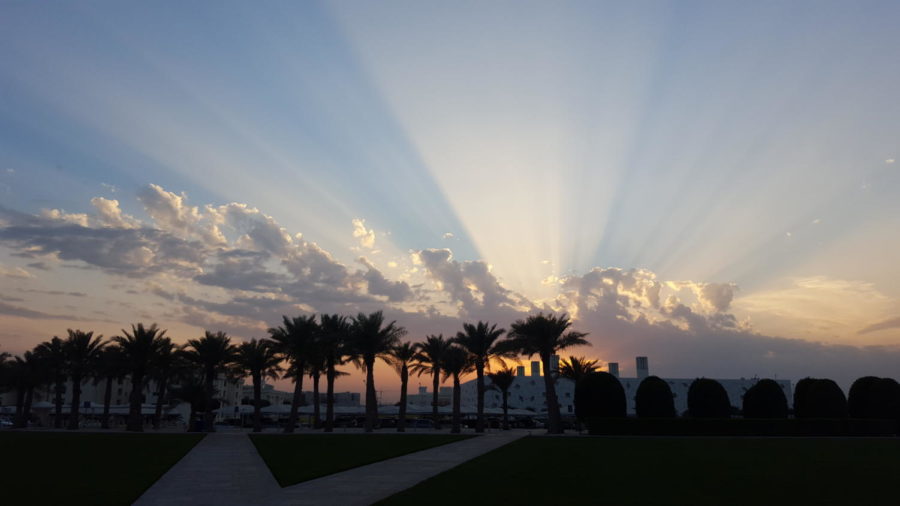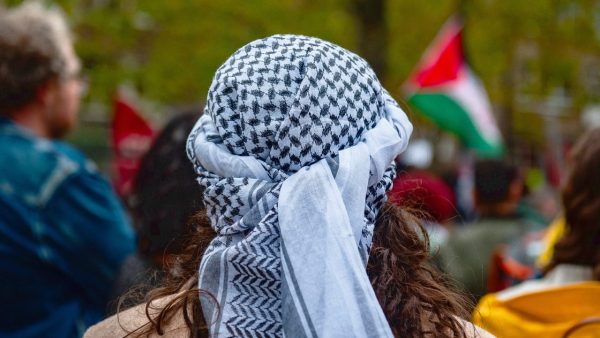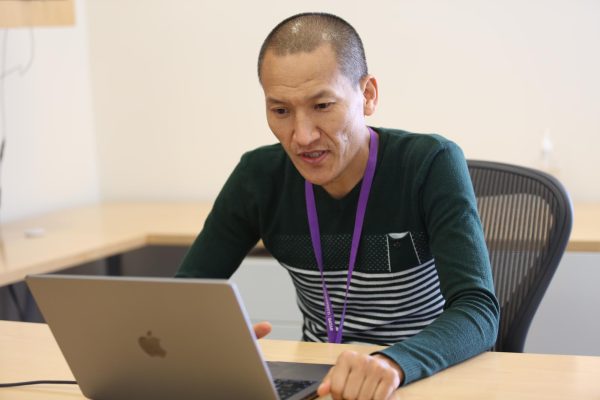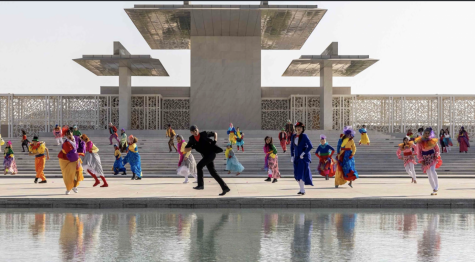Al-Annabi: Qatari patriotism
On the 5th of June 2017, Egypt, Saudi Arabia, Bahrain, and the United Arab Emirates released statements against Qatar and the animosity soon developed into an air, sea, and land blockade. This unforeseen yet seemingly unanimous decision came weeks after the Riyadh Summit of 2017. Qatar was accused of being a financier of terrorism and affecting the national security of its neighboring countries. Qatar vehemently denies all claims made against it, and the country has repeatedly expressed disappointment for the position its former allies have taken. While the political fallout immediately threatened Qatar’s food supply, namely dairy, poultry and vegetable imports from Saudi Arabia and the UAE, the effect on Qatar’s economy isn’t as pronounced as it was expected to be. Roughly nine months later, not much progress has been made in the cessation of the blockade. However, one thing has become extremely apparent: Qatari patriotism is on the rise.
Despite what is occurring on the global stage, Qataris are making sure that they remain strong at a time when their country and ruler are under scrutiny. Shortly after the announcement of the blockade in June, stickers depicting Ahmed Almaadheed’s now iconic artwork of Qatari Emir Sheikh Tamim bin Hamad Al Thani adorned numerous cars on the streets. Soon after, large posters of this artwork were erected around Doha. People were encouraged to sign the artwork and include messages of support for the emir and for the country of Qatar. Qatar Airways issued a press release stating that a poster had been put up in front of its corporate headquarters, with CEO Akbar Al Baker inaugurating the display with his signature. Forty of these posters, filled in with graffiti-styled signatures and messages, were displayed at an exhibition at the Museum of Islamic Art Park called, “Tamim Al Majid: Celebration of Unity.” People also have been spotted wearing t-shirts with the image of the emir. In the wake of the Gulf crisis, this outpouring of support has been followed by many positive changes in the country’s policies.
The blockade is a humanitarian disaster, but it is an exciting political moment for Qatar to move forward as an independent society, politically, economically, and socially.
Jocelyn Sage Mitchell, assistant professor of political science in the liberal arts program at Northwestern University in Qatar, said that as a result of the blockade, projects contributing to Qatar’s independence have been hastened.
For instance, in October of 2017, the Qatari government passed a draft bill to create a fund that would ensure foreign laborers get paid their wages on time. Qatar also signed bilateral agreements with the 36 nations that make up the majority of its labor force. The purpose of these agreements is to legally protect laborers. Similarly, in August of 2017, Sheikh Tamim ratified a law on domestic workers. The law now states that workers cannot be assigned workdays longer than 10 hours. The workers are also entitled to 21 days of annual leave and an end-of-service payment. In addition, the domestic dairy industry has been directly influenced by the blockade. Baladna, a Qatari farm company, aims to meet all of Qatar’s dairy needs by April 2018, with plans to expand their capacity to 10,000 cows. Doha Port, Qatar’s newly inaugurated seaport, now regularly receives double the traffic that it did before the siege.
“The blockade is a humanitarian disaster, but it is an exciting political moment for Qatar to move forward as an independent society, politically, economically, and socially,” Mitchell said.
The number of local business has increased since the beginning of the blockade. More than 14,600 companies were registered in Qatar in 2017 alone. That is a 13.4% increase compared to 2016, according to the Gulf Times. Qatari institutions such as Qatar Chamber and Qatar Development Bank are organizing seminars, workshops, and training for entrepreneurs in an effort to encourage more home-grown businesses.
Hamad Abdulrahman Al-Ibrahim, executive vice president of research and development at Qatar Foundation, told Forbes that the blockade will not affect the growth of entrepreneurship and startups in Qatar.
In addition to the boost in Qatar’s self-sustaining initiatives, diplomatic and trade relations with Iran have increased. Forbes reported that last year saw a 117% increase in trade between the two nations, who share the world’s largest natural gas field. Furthermore, Qatar restored full diplomatic links with Iran in August of 2017. This is problematic for the blockading nations as one of their reasons for imposing their dire measures was to undermine Qatar’s allegedly close relationship with Iran. Clearly, the blockade has backfired in this respect. Moreover, Qatar not only relies on Iran for trade, but also for airspace. The blockade put Qatar in a tricky predicament in regards to airspace, as it is surrounded on three sides by Bahraini, Saudi, and Emirati airspace, severely restricting Qatar Airways’ flight routes. As a result, all flights have been rerouted over Iran.
Hamad Ahmad, a 21-year-old Qatari student at the University of Pittsburgh in Pennsylvania, appreciates Qatar’s increasing autonomy. “Before, I felt a sense of Gulf unity. Now that the cards are on the table, and we’ve seen what our Gulf ‘friends’ want for us, I see Qatar as her own country,” he said. Other students express similar sentiments. “My sense of patriotism has definitely increased. The fact that we now have an external threat to our sovereignty has caused unification amongst Qataris,” said Ali Mohsin, a 21-year-old Qatari also studying at PITT. “I like the increase of enthusiasm because it shows the world how much we love our country in a time where neighboring countries are trying to remove the current Qatari government.”
While this seems to be the popular rhetoric, some argue that rising patriotism can be problematic. “There is good and bad associated with the patriotism. The bad is that people can become nationalistic, and stop questioning the government. I think it’s healthy to question our leaders,” said Amna Al-Baker, a 21-year-old Qatari student in Qatar Foundation. Researcher Michael J. Bader explores the concept of patriotism in his article, “The Psychology of Patriotism” (2006). He suggests that patriotism is two-sided, which can both be positive and negative. Bader says “On a symbolic level, we looked to our leaders to protect and strength usually associated with our fathers.”
Nonetheless, Al-Baker said she believes that this patriotism has been positive for Qatar. “The united front we put up when the blockade happened really helped our image in the public eye. All of the people are behind the emir. Some other GCC countries don’t even have the support of their people.”
My sense of patriotism has definitely increased. The fact that we now have an external threat to our sovereignty has caused unification amongst Qataris.
The increase in patriotism is not only affecting Qatar’s social spheres, but its economic, political, and industrial spheres as well. Mitchell said the improved relationship with Iran, the inclusion of women into the Shura Council (Qatar’s legislative branch of governance), and future Shura Council elections are all part of the progressive change Qatar is now experiencing. She added that social issues have also seen progress in Qatar. Now, children born to Qatari mothers and expatriates can apply for permanent residency. “I have no doubt that the Qatari leadership will continue to use this moment to its advantage to move forward on many issues that have needed resolution,” she said.
While some see these changes as genuine and propelling the nation forward, others have expressed suspicion. Human Rights Watch commended Qatar for turning inward and raising the standard of human rights in the Gulf, as opposed to spending its energy in bitter opposition to the blockading nations. However, In an interview with the Middle East Eye, human rights researcher Nicholas McGeehan calls Qatar’s intentions into question: “Citing the introduction of a minimum wage as progress glosses over the fact that the minimum wage proposed is below the minimum demanded by sending embassies.” He adds that the proximity of the reforms to the blockade is alarming, and has stirred suspicions that these are short term political strategies that may fall through after the crisis concludes. “Only time will tell if this optimism is well-founded,” said McGeehan.
The future of the GCC is uncertain at the moment, but one thing seems to be true: Qatar is changing. For the youth of the nation experiencing this mass celebration of Qatar and its emir, this has changed the way they view the country and their role as Qataris. Qatar National Day took place on the 18th of December. There has been a heightened sense of pride and unity, not only among the nationals, but among residents as a whole. In the blur of uncertainty, Qatar clearly hopes to emerge stronger than before.
















